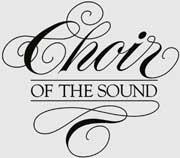Double Friday Factoids! 1) “Mr. Amen,” Jester Hairston; 2) The Evolution of “Hold On”
—By Cindy Jacobs Jestie Joseph Hairston (nicknamed “Jester” by a teacher) was born in 1901, the grandson of slaves from the Hairston plantation at Belew’s Creek, North Carolina. He attended Massachusetts Agricultural College, graduated cum laude from Tufts University with … Read More

